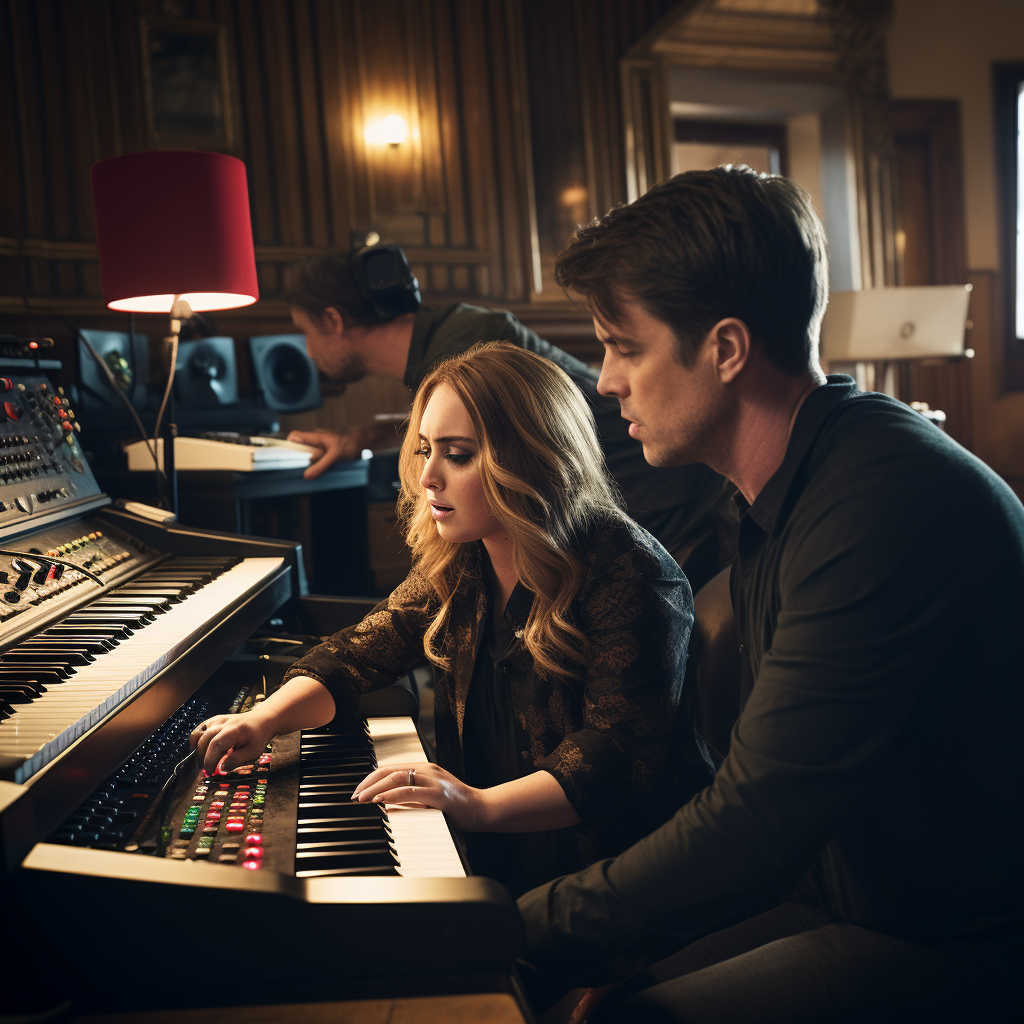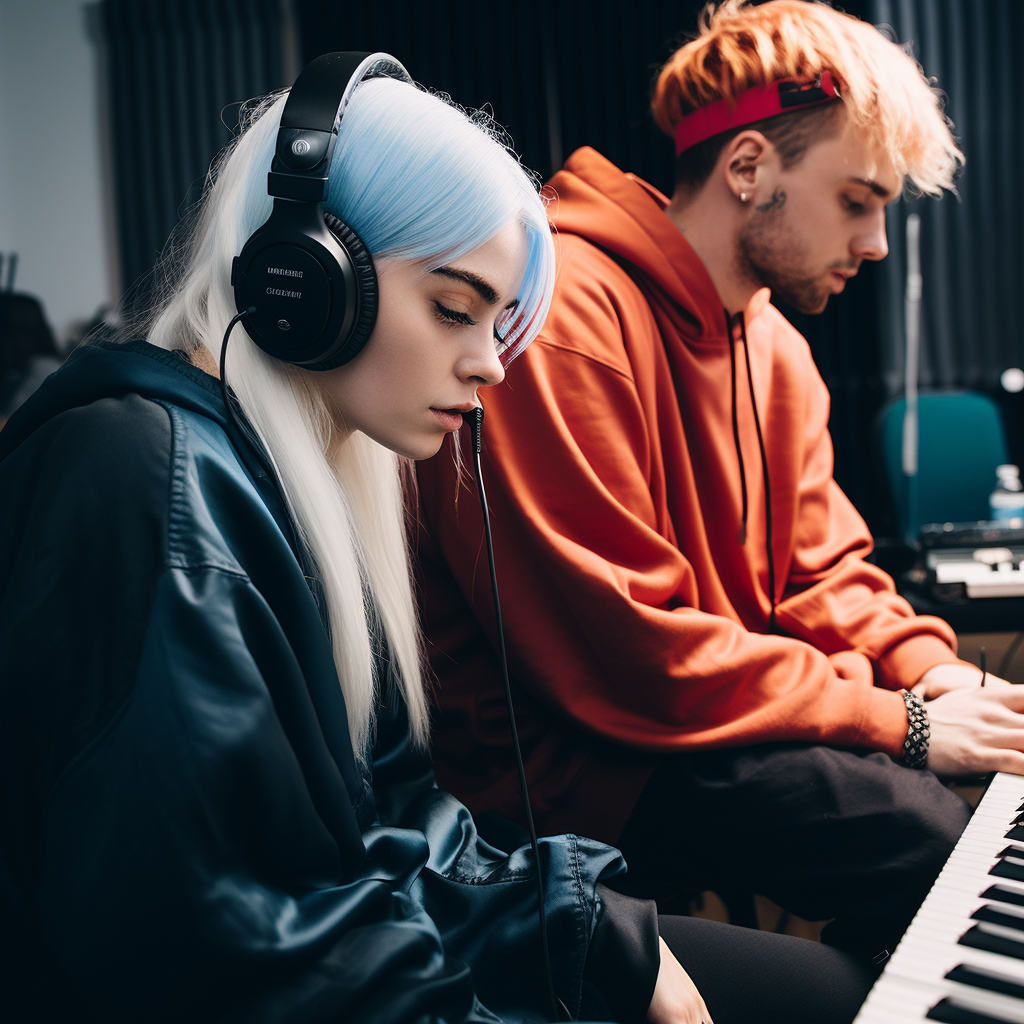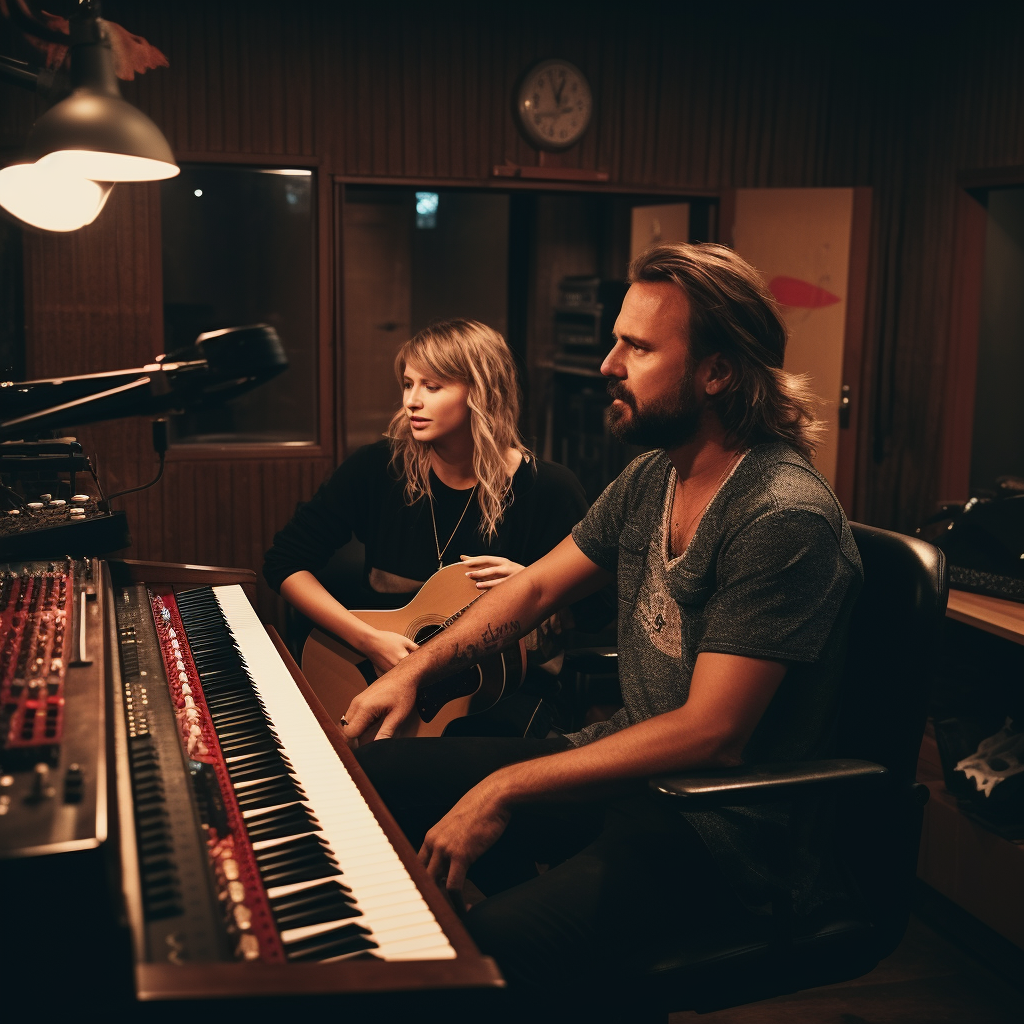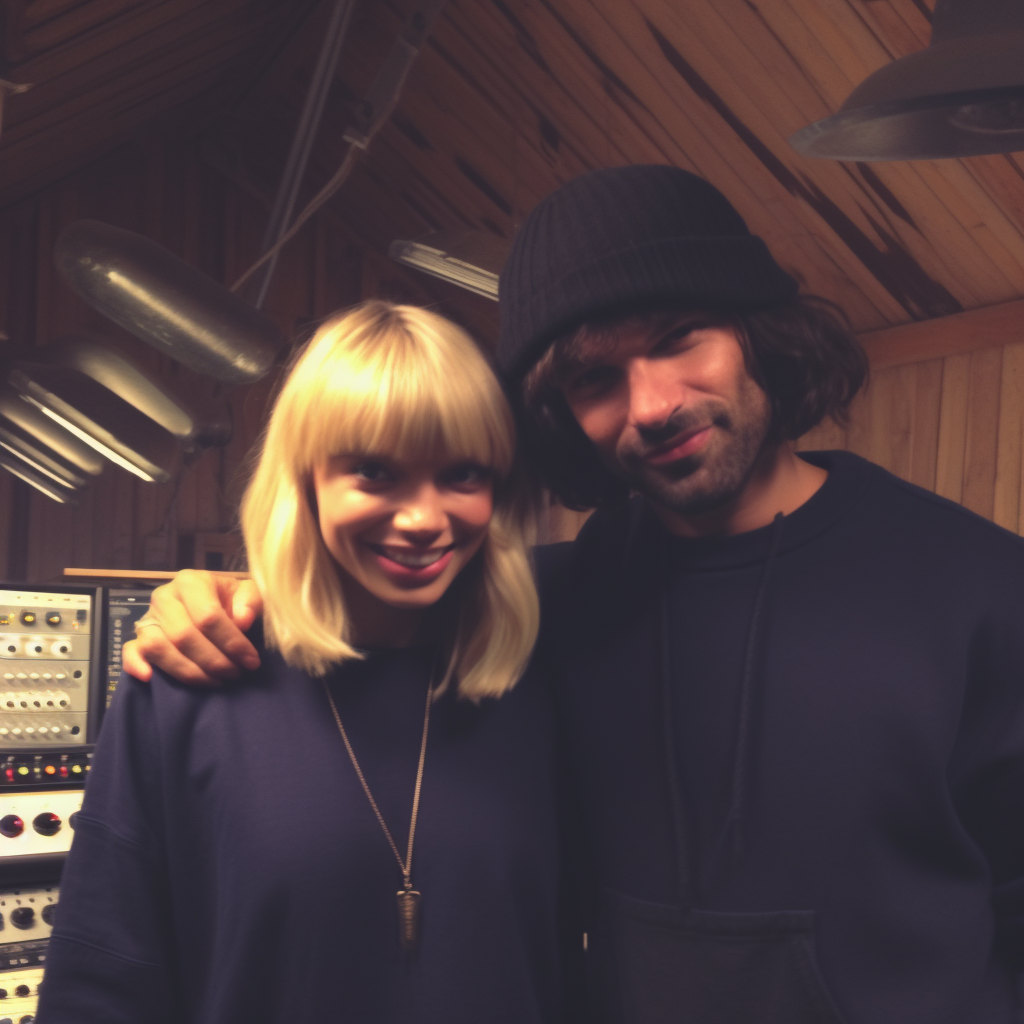Introduction
In the digital age, artists are encouraged to do everything themselves, from production to distribution.
On the production side, I have noticed a significant increase in the number of artist bios changing from “singer” to “singer-songwriter” to “singer-songwriter / topliner / vocalist” and eventually to “singer-songwriter / topliner / vocalist / producer” in the past couple of decades.
I strongly encourage artists to have music production skills. Only the artist themselves will have the authentic ear for how their record should sound. This is particularly important for vocal production, as artists need to maintain consistency across their records.
That being said, music production is a distinct art form. It usually takes artists at least three albums before they can effectively translate their vision into sound. Even the most talented artists often rely on producers when creating their records.
Music production is not solely an engineerable or skill-based role. It is an art: the art of capturing the best representation of music on a record. It goes beyond simply capturing what the artist and musicians are doing (although recording is a significant aspect). It involves delicately balancing what the artist intends to portray on the record with what the record requires from the artist.
The role of a Music Producer
The modern music producer is expected to do, at a minimum, a list of things:
- Recording (typically vocals but sometimes instruments)
- Be proficient with autotune
- Making “beats”
- Understand effects
- Be proficient with sampling (even for re-sampling work they’re recording for effects like vocal chops)
- Mixing
- Mastering
These skills mentioned are valuable, but they represent only a small portion of the skills encompassed by the term “music producer”.
The true skill of a music producer lies in utilising composition, arrangement, and technology to capture and convey the precise emotion of the song and performance that the artist intends to portray. This is particularly important when the artist grants creative control, as collaboration plays a significant role (which we will discuss further below). Additionally, a music producer is responsible for creating an environment that allows for vulnerability, enabling the artist to access and channel the necessary emotions required for the performance.
Music producers play a crucial role in the studio, serving as a second pair of technical hands and artistic ears. They are responsible for handling the technical aspects of the recording process and adding embellishments to the composition. This allows the artist to concentrate on delivering a captivating performance and conveying the emotions embedded in the music.
Music producers often have their own artistic style, and being aware of this style is an important factor in influencing artists when choosing which producers to work with. This decision depends on both the specific project and the artist’s own artistic direction.
Are you searching for a music producer for your project? Are you interested in UK Underground Electronic Music sounds, and the exploration of melody, melancholy, distortion, and atmosphere? I could be the perfect producer for you!
Successful artists view music producers as invaluable and essential contributors to the record-making process.
Adele - Rolling in the Deep

The collaboration between Adele and producer Paul Epworth is a compelling case study that demonstrates the value of a synergistic artist-producer relationship.
Epworth’s rock-infused sensibilities seamlessly blended with Adele’s soulful vocal style, resulting in a sound that was fresh and emotionally resonant.
This collaboration was not merely focused on creating a hit song; it was about creating a sonic landscape that enhanced Adele’s raw emotional expression.
Epworth’s role went beyond technical expertise; he served as a creative co-pilot, helping Adele bring her vision to life in a way that connected with a wide audience.
This partnership showcases how a producer can play a vital role in shaping an artist’s work, offering not only technical skills but also creative direction and emotional depth. Such collaborations can be transformative, elevating a good song into an unforgettable experience that has a lasting impact on both the artist’s career and the broader musical landscape.
Billie Eilish and Finneas O'Connell
The creative alliance between Billie Eilish and her brother, producer Finneas O’Connell, exemplifies the intrinsic value of a well-matched artist-producer relationship.
Finneas is not just a technical guide for Eilish; he is a creative confidant who understands her artistic intent like no one else. This closeness allows for an emotional nuance and complexity in their music that may be difficult to achieve with a less intimate collaboration.
Their collaboration on the groundbreaking album “When We All Fall Asleep, Where Do We Go?” showcases how a producer can help an artist delve deeper into their own creative psyche to create something truly original.
Finneas’ role goes beyond the technical aspects of the studio; he contributes to the emotional and thematic layers of the music, making him an essential part of Eilish’s unique sound. This collaboration demonstrates the profound impact a producer can have, not only in shaping a hit record but also in defining an artist’s identity and enabling them to connect with audiences on a deeper level.

Taylor Swift and Max Martin

It’s impossible to discuss successful music producers without mentioning the mighty Max Martin.
Max Martin, a Swedish music producer and songwriter, has played a monumental role in shaping the modern pop landscape. His influence is particularly evident in the career of Taylor Swift, with whom he collaborated on her transition from country to mainstream pop. Martin worked on Swift’s fifth studio album, “1989,” which marked a significant departure from her country roots. Songs like “Shake It Off” and “Blank Space,” co-written and produced by Martin, became instant hits, topping charts and winning numerous awards. His talent for crafting catchy hooks and memorable melodies helped Swift successfully cross over into the pop genre, solidifying her status as a global superstar.
Martin’s Midas touch extends beyond Taylor Swift; he has been instrumental in the careers of several other artists, including Britney Spears, Katy Perry, and Ariana Grande. His work on Spears’ “…Baby One More Time” and Perry’s “Teenage Dream” are considered pop masterpieces, showcasing his ability to create iconic, chart-topping hits. Whether introducing a new sound or refining an artist’s existing style, Max Martin’s production work serves as a catalyst for commercial success and artistic evolution. His collaborations have not only shaped individual careers but have also left an indelible mark on the music industry as a whole.
Sia
Like Swift, it is impossible to discuss the highest level of DIY singer-songwriters without mentioning the great Sia. However, Sia would not have achieved what she has without collaborating with music producers.
In the early 2000s, Sia’s career took a significant turn with the UK Garage (UKG) remix of her song “Little Man.” The remix, produced by UKG pioneers Exemen, transformed the original track into a dance floor anthem. This exposed Sia to a new audience and helped her break into the UK music scene. This moment was pivotal in demonstrating the transformative power that a producer or remixer can have on an artist’s career trajectory.

Around the same time, Sia also collaborated with the British musical duo Zero 7. She served as a featured vocalist on tracks like “Destiny” and “Distractions” from their album “Simple Things.” This partnership allowed Sia to explore a more downtempo, soulful style, further diversifying her musical portfolio. Working with Zero 7 not only expanded her sonic range but also introduced her to a wider mainstream audience, setting the stage for her subsequent solo success.
Sia’s career is a testament to the multifaceted role that producers can play in an artist’s journey. From the UKG remix of “Little Man” to her collaborations with Zero 7, Greg Kurstin, and David Guetta, each partnership has served as a stepping stone for her to explore new musical territories. These collaborations have not only shaped her sound but also expanded her reach, proving that the right producer can be a catalyst for both artistic growth and commercial success.
Other producer ↔ artist relationships I’m obsessed with
To save the hugest article in the world, I will have to think about writing dedicated posts for the following producers, but others that demonstrate the value of the music producer to an artist include:
- Ian Kirkpatrick who produced for hits by Dua Lipa, Carli XCX and Selena Gomez, amongst many others.
- Mark Ronson who was obviously incredibly important to Amy Winehouse, not to mention his huge list of other hit collaborations.
- Rick Rubin who likely needs no introduction but has been credited as an essential part of so many successful projects.
- George Martin who was “the fifth Beatle”.
- Brian Eno has been pivotal to music as a producer in so many ways, but particularly inspiring to me is his work with technology, atmosphere and textures.
This list is endless, of course. However, these are just a few music producers who have greatly influenced me with their approach to working with artists on a record. I believe they demonstrate how essential an external producer is to the artist in most cases.
The art of pairing artists and producers
In both the U.S. and the UK, the role of A&R is pivotal. In the U.S., major labels often have in-house producers, making the A&R’s job more streamlined. In the UK, independent labels like PMR Records and Asylum Records serve as talent incubators, often willing to take risks on unconventional pairings. These A&R-led collaborations have proven to be game-changers in the artists’ careers, demonstrating the transformative power of the right artist-producer pairing:
USA
- Diplo and M.I.A.: M.I.A. was relatively unknown before being paired with Diplo by A&R at XL Recordings. The result was “Paper Planes,” which catapulted her into mainstream success.
- Zedd and Alessia Cara: Interscope Records’ A&R saw the potential in pairing newcomer Alessia Cara with established electronic producer Zedd. The collaboration led to the hit “Stay,” which received commercial and critical acclaim.
- Kygo and Conrad Sewell: A&R at Sony Music paired Australian singer Conrad Sewell with Norwegian DJ Kygo for the track “Firestone.” This collaboration helped launch Sewell’s career and solidified Kygo’s reputation as a hitmaker.
UK
- Disclosure and Sam Smith: Before Sam Smith became a household name, he was paired with Disclosure by the A&R team at PMR Records. The collaboration resulted in “Latch,” which was a commercial success and effectively launched Smith’s career. The A&R team, led by Ben and Daniel Parmar, saw the potential in this unique pairing.
- Rudimental and John Newman: A&R executives at Asylum Records, a subsidiary of Warner Music UK, facilitated the pairing of Rudimental and John Newman. Ed Howard, the A&R at Asylum, was instrumental in this. The result was “Feel the Love,” a UK number-one hit that launched Newman’s career.
- Clean Bandit and Jess Glynne: A&R at Atlantic Records UK paired Jess Glynne with electronic group Clean Bandit for the song “Rather Be.” The track was a commercial success and helped launch Glynne’s solo career.
Of course, we don’t need major labels and A&Rs to recognise a synergy between an artist and producer. However, understanding that this collaboration often leads to success helps demonstrate that these pairings are seen as crucial for creating a successful record.
Work with me
I am a professional music producer specialising in underground-style UK Electronic music with elements of melody, melancholy, distortion, and atmosphere. I have a degree in music production and have produced for several artists who have gone on to achieve high-profile success, both with major labels and independently.
My work for hire fee starts at £600 per track. I have access to professional recording studios in London and Brighton. Please click here and fill out the following form to let me know about your project and needs: